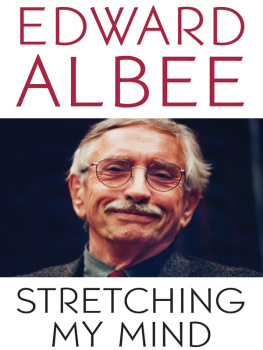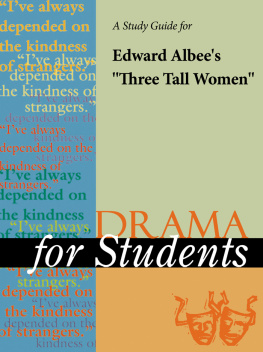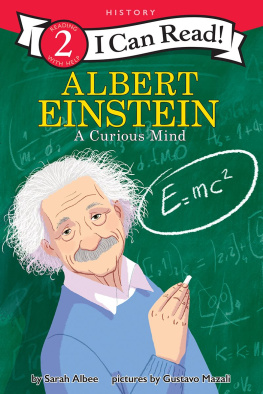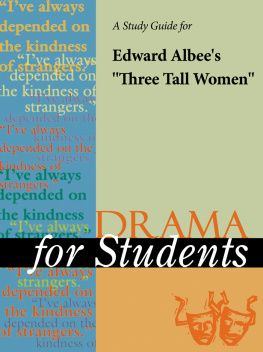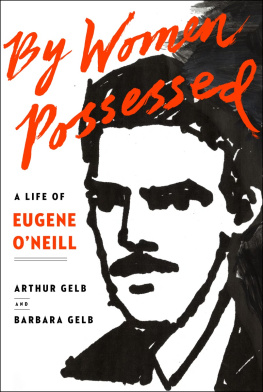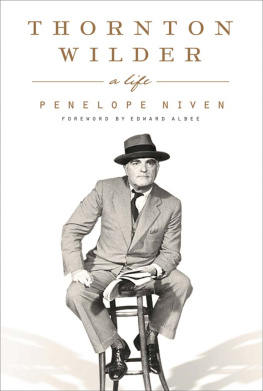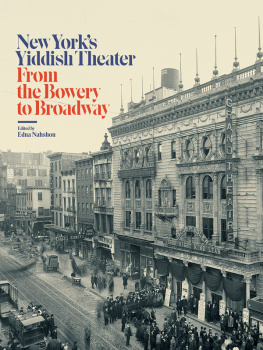A COLLECTION OF occasional piecesmeaning, as I understand it, pieces about occasions, not fripperiescan be a kind of high-wire act or, at best, a going out on several limbs.
Is it interesting what a playwright thinks about the visual arts (which so many of the pieces collected here deal with) or about music, or about critical journalism, orindeedhis own craft? It can be if the playwright is knowledgeable about his subjects and has one or two provocative or illuminating ideas to throw out and if his essays are done to broaden his vision and to share a professional view of his surroundings, and not as dogma but as educated opinion.
Certainly I am not ashamed of the opinions I express here; nor do I claim revolutionary insights for them, but they may illuminate what goes through a playwrights mind as he reacts to stimulating experience in the areas akin to his creativity. Indeed, I tell my students that if they remain ignorant of or unreceptive to the visual arts and music they are hobbling their craft muscles, for a play is both seen and heard, and the ear and the eye must be highly developed for a playwright to use his craft to his full benefit.
I was fortunate in my education. While I was increasingly dismayed by my adoptive parents as I grew toward reason (my natural parents are unknown to me), by their dedicated anti-intellectualism and their profound racial and social prejudices, I was fortunate that they had money and afforded me a splendid education, in private schools, where I was directed to the wonders of the arts while I was young enough to absorb these wonders without youngmanly prejudice.
And I am convinced that no one is fully educated without a full grounding in the arts.
So... Here we are. Forty-two pieces of my mind, written on commission, written as much as anything to inform me about what and how I was thinking. If they are useful beyond that... so much the better.
O N T HE Z OO S TORY
1960
WITH THE EXCEPTION of a three-act sex farce I composed when I was twelvethe action of which occurred aboard an ocean liner, the characters of which were, for the most part, English gentry, and the title of which was, for some reason that escapes me now, Aliqueenwith the exception of that, The Zoo Story (1958), The Death of Bessie Smith, and The Sandbox (both 1959), are my first three plays.
The Zoo Story, written first, received production firstbut not in the United States, where one might reasonably expect an American writer to get his first attention. The Zoo Story had its premire in Berlin, Germany, on September 28, 1959. How it got to production so shortly after it was written, and how, especially, it got to Berlin, might be of interestperhaps to point up the Unusual, the Unlikely, the Unexpected, which, with the exception of the fare the commercial theater setup spills out on its dogged audience each season, is the nature of the theater.
Shortly after The Zoo Story was completed, and while it was being read and politely refused by a number of New York producers (which was not to be unexpected, for no one at all had ever heard of its author, and it was a short play, and short plays are, unfortunately, anathema to producers andsupposedlyto audiences), a young composer friend of mine, William Flanagan by name, looked at the play, liked it, and sent it to several friends of his, among them David Diamond, another American composer, resident in Italy; Diamond liked the play and sent it on to a friend of his, a German actor, Pinkas Braun; Braun liked the play, translated it, made a tape recording of it, playing both its roles, which he sent on to Mrs. Stefani Hunzinger, who heads the drama department of the S. Fischer Verlag, a large publishing house in Frankfurt; she, in turn... well, through her it got to Berlin, and to production. From New York to Florence to Zurich to Frankfurt to Berlin. And finally back to New York where, on January 14, 1960, it received American production, off-Broadway, at the Provincetown Playhouse, on a double bill with Samuel Becketts Krapps Last Tape.
I went to Berlin for the opening of The Zoo Story. I had not planned toit seemed like such a distance, such an expensebut enough friends said to me that, of course, I would be present at the first performance of my first play, that I found myself, quickly enough, replying, yes, yes, of course; I wouldnt miss it for the world. And so, I went; and I wouldnt have missed it for the world. I wouldnt have missed it for the world, despite the factas I have learned sincethat, for this author, at least, opening nights do not really exist. They happen, but they take place as if in a dream: One concentrates, but one cannot see the stage action clearly; one can hear but barely; one tries to follow the play, but one can make no sense of it. And, if one is called to the stage afterwards to take a bow, one wonders why, for one can make no connection between the work just presented and ones self. Naturally, this feeling was complicated in the case of The Zoo Story, as the play was being presented in German, a language of which I knew not a word, and in Berlin, too, an awesome city. But, it has held true since. The high points of a persons life can be appreciated so often only in retrospect.

